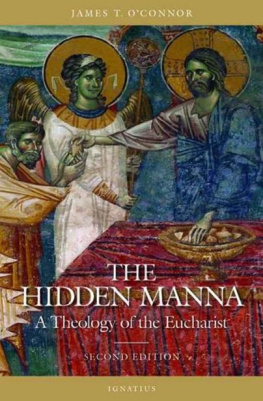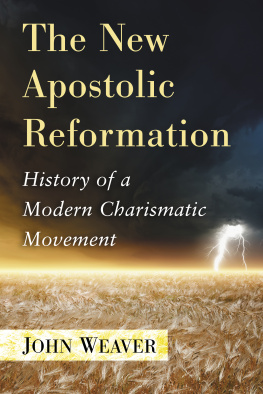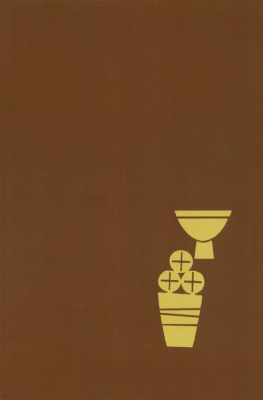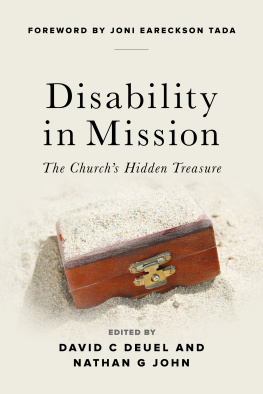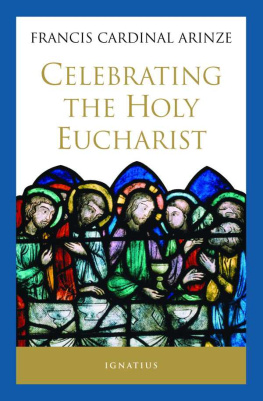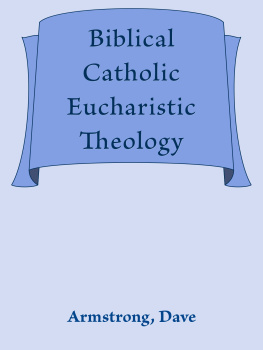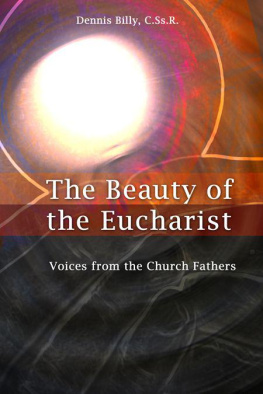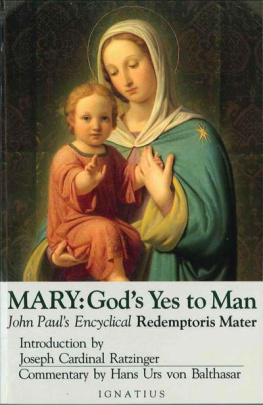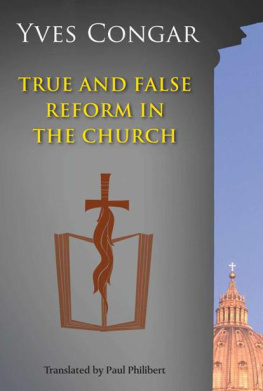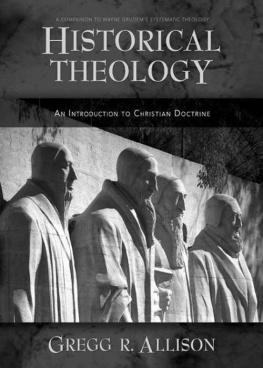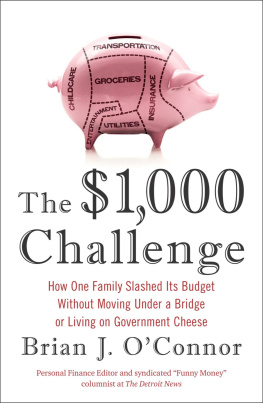THE HIDDEN MANNA
Reverend James T. OConnor
THE HIDDEN MANNA
A Theology of the Eucharist
Second Edition
IGNATIUS PRESS SAN FRANCISCO
The Scripture references are from the Holy Bible.
They are taken from the New International Version.
1973, 1978, 1974, by the International Bible Society.
All rights reserved. Used by permission of the Zondervan Bible Publishers.
Cover art:
Holy Communion . Byzantine fresco, 14th c. (detail)
Church of The Dormition, Prizren, Serbia and Montenegro
Erich Lessing / Art Resource, New York
Cover design by Roxanne Mei Lum
With ecclesiastical approval
1988, 2005 by Ignatius Press, San Francisco
All rights reserved
ISBN 1-58617-076-7
Library of Congress Control Number 2002105233
CONTENTS
I Lauda Sion
The Didache ; The Epistle of Clement of Rome; The Odes of Solomon ; St. Ignatius of Antioch
St. Justin Martyr; St. Irenaeus; St. Hilary of Poitiers; The Mystagogic Catechesis ; St. Gregory of Nyssa
St. Ambrose; St. Jerome; St. John Chrysostom; St. Augustine; Theodore of Mopsuestia; St. John of Damascus
Paschasius Radbertus; Rabanus Maurus; Ratramnus of Corbie
II This Is a Hard Teaching. Who Can Accept It?.
The Cathari; Bandinelli; Alan of Lille; Duns Scotus
Wyclif; Hus and the Utraquists
Luther; Zwingli; Calvin; Cranmer and the Thirty-Nine Articles of Anglicanism
Leenhardt; De Baciocchi and Transfinalization-Transignification; Anglican-Roman Catholic International Commissions Final Report ; The Lima Text
III Peter and the Eucharist
Sylvester II (999-1003)
Leo IX (1049-54) and Nicholas II (1058-61); Gregory VII (1073-85); Hadrian IV (1154-59); Alexander III (1159-81); Innocent III (1198-1216) and the Firmiter of Lateran Council IV
Urban IV (1261-1264) and the Transiturus ; St. Thomas Aquinas; Clement IV (1265-68); Clement V (1305-14); Eugene IV (1431-47) and the Council of Florence
Julius III (1550-55); The Eucharist as Sacrifice; Trent and the Mass as Sacrifice; Pius IV (1559-65)
Blessed Pius IX (1846-78); Leo XIII (1878-1903); St. Pius X (1903-14); Pius XII (1939-58); Paul VI (1963-78); The Creed of the People of God ; Pope John Paul II (1978-)
IV Mysterium Fidei
A NOTE FROM THE PUBLISHER REGARDING THE REVISED EDITION
Fifteen years ago I received an unsolicited manuscript by Msgr. James T. OConnor, a priest of the archdiocese of New York and a faculty member of its seminary in Dunwoodie. This manuscript was such a lucid and compelling account of the Churchs teachingfrom earliest timeson the Eucharistic sacrifice and the Real Presence that we immediately decided to publish it without sending it out to any others for additional review.
We have been gratified that the book has continued to sell well since 1990 when it was first published. Now that the Holy Father, John Paul II, has declared a Year of the Eucharist, it seemed to be an appropriate time to issue the book, updated by the author, along with an updated authors preface and a brief introduction. Fr. Kenneth Bakers review of the book in Homiletic and Pastoral Review of October, 1990, seemed imminently apt to serve this purpose.
We hope that this reedition will help many new readers to come to a deeper appreciation of this great Sacrament of Sacraments.
Joseph D. Fessio, S.J.
Publisher
FOREWORD
It doesnt surprise me that Father OConnor would use Flannery OConnors reverential irreverence to comment on the Eucharist as Mystery. It is typical of both the whimsy of his writing and the brilliance of his teaching.
He is speaking of the shock created at Capharnaum by Jesus words: My flesh is meat indeed, my blood is drink indeed. Whoever eats of my flesh and drinks of my blood will never die. Jesus anticipated the shock, Father OConnor tells us, and knew well that it would be for many simply too much to accept. The scandal of the Mystery has never gone away. Flannery OConnor talks about it in one of her letters in The Habit of Being , in recalling a visit she had made to another well-known author and former Catholic:
[She] said that when she was a child and received the Host, she thought of it as the Holy Ghost, He being the most portable person of the Trinity; now she thought of it as a symbol and implied that it was a pretty good one. I then said, in a very shaky voice, Well, if its a symbol, to hell with it. That was all the defense I was capable of but I realize now that this is all I will ever be able to say about it, outside of a story, except that it is the center of existence for me; all the rest of life is expendable.
That just happens to be one of my own favorite Flannery OConnor stories. Much more importantly, it tells us a great deal about Father OConnors thinking and his book. In a day of far too much ambiguity about both the meaning of the Mass and the Real Presence of Christ in the tabernacle, he gives us a ringing affirmation of the Churchs traditional and unmistakable teaching. His scholarliness is indisputable, his own faith unshakeable, yet his arguments are straightforward and uncomplicated, and his understanding of the difficulties of those neither schooled as he is nor gifted with his faith is sensitive and authentic.
As he does so carefully in his Christological study, The Fathers Son , Father OConnor respects modern scriptural exegesis and studies in the development of doctrine. He is no fundamentalist. The Hidden Manna is rooted in exhaustive study of scripture, commentaries and sermons of the Church Fathers and insights of modern theologians. He gives us nothing less than a comprehensive study of the Churchs meditation on the Mystery of the Eucharist from the first centuries to our own times. I suspect that he would summarize his own convictions about this Mystery of Faith in the words of Pope John Paul IIs Message to the Eucharistic Congress at Lourdes (July 21, 1981).
The sacrifice of the Cross is so decisive for the future of man that Christ did not carry it out and did not return to the Father until he had left us the means to take part in it as if we had been present. Christs offering on the Crosswhich is the real Bread of Life brokenis the first value that must be communicated and shared. The Mass and the Cross are but one and the same sacrifice. Nevertheless the eucharistic breaking of bread has an essential function, that of putting at our disposal the original offering of the Cross. It makes it actual today for our generation. By making the Body and Blood of Christ really present under the species of bread and wine, it makessimultaneouslythe Sacrifice of the Cross actual and accessible to our generation, this Sacrifice which remains, in its uniqueness, the turning point of the history of salvation, the essential link between time and eternity.
I find myself touched particularly by Father OConnors dedicating this work to Mary and its overall Marian orientation. He is, after all, one of the outstanding Mariologists in the United States, and his recognition of Marys role in giving us the Eucharist is both moving and insightful.
For the lay reader who wants a rich understanding of the Eucharist, for either teacher or student of the theology of the Eucharist, for the preacher who, as in my own case, is always seeking deeper insight to share with Gods People, The Hidden Manna is a superb work. I am personally most grateful to its author.
John Cardinal OConnor
PREFACE TO THE 1988 EDITION
If its worth doing, its worth doing poorly, wrote G. K. Chesterton, attempting to combat our tendency to use that other famous dictum If its worth doing, its worth doing well as an excuse for doing nothing. Now, having completed this work on the Eucharist, I am sadly aware of how well I have followed Chestertons advice. What we really need in the English language is an updated version of Darwell Stones monumental two volume work, from which I have learned so much. Long out of print, it is a study that still leaves one amazed at the breadth of Stones scholarship and the balance of his judgments. Even the admirable synthesis of the history of Eucharistic doctrine that is found throughout the four volumes of The Christian Tradition , written by Jaroslav Pelikan, another non-Catholic scholar, is not able to replace Stones work, simply because Pelikan has endeavored, successfully, to provide us with a study that encompasses so much more than the doctrine on the Eucharist, thereby limiting the space he might spend on any one theme. If one must at times question something reported as a specific fact or disagree with a particular interpretation of these men, it can be done only with the recognition of the lasting value of their achievements.
Next page
